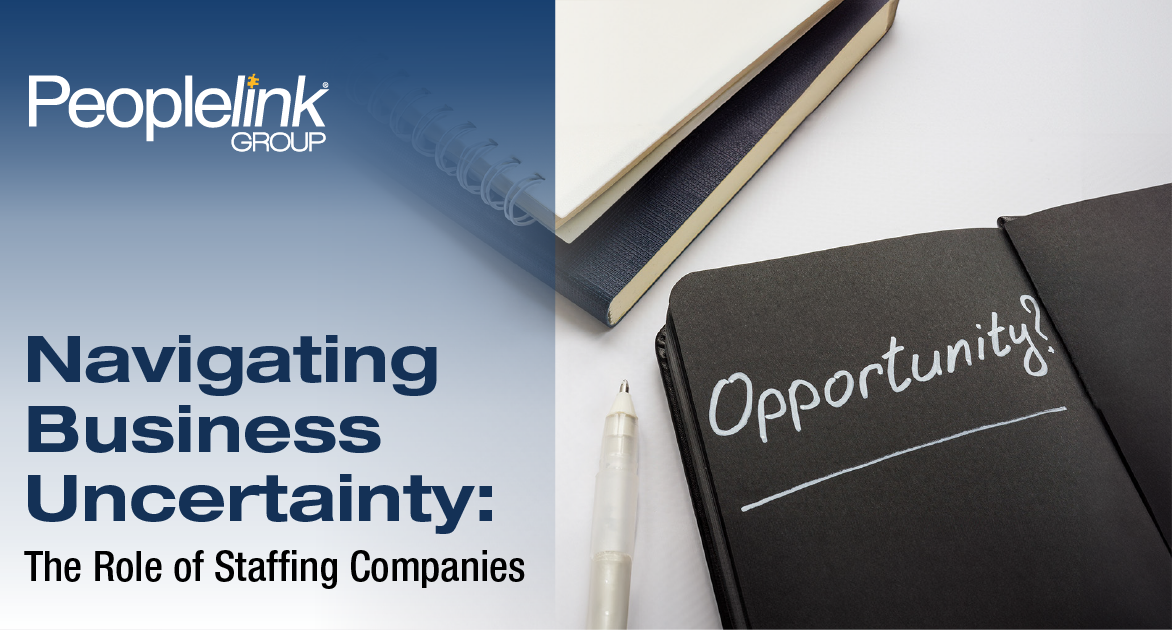Uncertainty is an inherent part of business, whether caused by economic shifts, supply chain disruptions, labor market fluctuations, or evolving regulations. Companies must continuously adapt to remain competitive and resilient. A key strategy in managing uncertainty is leveraging temporary and flexible staffing solutions. Staffing companies provide businesses with workforce agility, cost control, and specialized expertise, enabling them to navigate challenges with confidence.
Economic and Market Uncertainty
Economic fluctuations, industry downturns, and changing consumer behaviors can create an unpredictable business environment. In such conditions, many companies hesitate to make long-term hiring commitments. A staffing agency offers a solution by providing access to temporary and contract workers who can be scaled up or down based on demand. This versatility ensures that businesses can maintain productivity without overextending resources during economic uncertainty.
Market volatility also impacts hiring strategies. When investment decisions become uncertain due to external factors such as inflation, interest rate changes, or supply chain disruptions, staffing firms help companies manage labor costs efficiently. Rather than committing to permanent hires, businesses can rely on contingent staffing to keep operations running smoothly while preserving financial stability.

Rather than committing to permanent hires, businesses can rely on contingent staffing to keep operations running smoothly while preserving financial stability.
Regulatory and Compliance Challenges
Shifts in labor laws, workplace safety regulations, and compliance requirements present another layer of uncertainty for businesses. Navigating complex employment laws, from wage regulations to worker classification, can be challenging without dedicated expertise. Staffing agencies specialize in workforce compliance which ensures businesses adhere to legal requirements and avoid costly penalties. Partnering with a staffing company mitigates these risks by providing workforce solutions that align with current employment laws, reducing the burden on internal HR teams and legal departments.
The Need for Workforce Agility
In an unpredictable business landscape, the ability to scale staffing levels quickly is a competitive advantage. Seasonal peaks, unexpected surges in demand, and project-based work require a workforce that can be adjusted in real-time. Staffing firms provide on-demand talent, ensuring businesses remain agile and responsive.
For example, industries such as logistics, manufacturing, and retail often experience rapid fluctuations in labor needs. By utilizing temporary staffing, companies can ramp up operations during peak seasons and scale down when demand stabilizes—without the complications of hiring and laying off permanent staff. This level of workforce adaptability is essential for businesses that need to remain competitive while managing labor costs efficiently.
Access to Specialized Talent
Certain industries require specialized skills that may not be readily available in the full-time job market. Staffing companies offer access to highly skilled professionals in fields such as IT, skilled trades, healthcare, and engineering. Businesses benefit from staffing firms’ extensive talent networks, enabling them to source workers with niche expertise quickly.

Businesses benefit from staffing firms’ extensive talent networks, enabling them to source workers with niche expertise quickly.
For instance, companies in regulated industries, such as pharmaceuticals or finance, require professionals with a deep understanding of compliance standards. By partnering with a staffing agency specializing in their industry, these businesses can secure the right talent while minimizing risks associated with regulatory non-compliance.
Cost-Effective Staffing Strategies
Maintaining a permanent workforce during periods of uncertainty can be financially challenging. Fixed overhead costs such as salaries, benefits, and training expenses can strain resources, especially when revenue streams fluctuate. Flexible staffing solutions allow businesses to optimize labor costs by paying for talent only when needed.
Flexible staffing solutions allow businesses to optimize labor costs by paying for talent only when needed.

Many businesses are increasingly concerned about how economic uncertainty impacts workforce planning. Utilizing temporary and contract employees reduces financial strain, giving companies greater control over labor expenditures. Additionally, staffing agencies simplify operations by handling administrative tasks like payroll, benefits, and compliance, further easing operational burdens.
Mitigating Hiring Risks
Hiring permanent employees carries risks, particularly during uncertain times. The costs associated with recruitment, onboarding, and potential turnover can be significant. Temporary-to-permanent staffing solutions allow businesses to assess workers’ performance and cultural fit before making a long-term commitment. This reduces hiring risks while ensuring that businesses invest in the right talent for their long-term goals.

Temporary-to-permanent staffing solutions allow businesses to assess workers’ performance and cultural fit before making a long-term commitment.
In conclusion, business uncertainty is inevitable, but strategic workforce planning can help companies remain resilient and adaptable. Staffing agencies provide flexible staffing solutions that empower businesses to manage economic shifts, regulatory changes, and market fluctuations with confidence. By leveraging temporary and contract staffing, companies can optimize costs, access specialized talent, and maintain workforce agility—positioning themselves for success in any business climate.
Ready to fortify your business against uncertainty? Contact us today to learn how we can support your organization’s resilience and long-term success.














